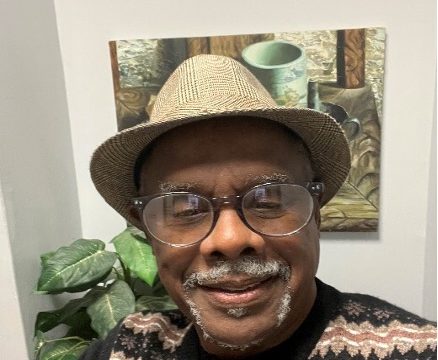

“What happened to me, that person who loves to read? Each day as I walk by a stack of hard-back books, I wonder where is that voracious reader who once lived here. I want to become addicted again to reading books. I need a fix.”
-Faith Edwards, Publisher, Chattanooga News Chronicle
When the bell rang, I tip toed to the door and peered out the small window hoping not to see someone there to serve me with a warrant for some reason. Feeling relieved, when the Amazon driver walked away, I saw that she left a small box on the doorstep. I snatched it up, and once inside, ripped it open and retrieved a book I’d ordered, and one I forgot that I’d ordered.
Okay, so what you ask?
Well, here’s some good news. There’s scientific evidence that books – I mean those that are hard or soft covered with actual pages in between – are good for the brain. I repeat that: good for the brain! However, in case you didn’t know, book reading is on the decline and has been for decades.
According to Markham Head in, “Why Reading Books Is Important for the Brain,” in 1978 just 8% of Americans said they had not read a book during the previous year and, according to a Gallup poll. that figure has now jumped to 24%. I sent the article to Teresa Rice, owner of Douglasville Books and asked Faith Edwards, Publisher, The Chattanooga News Chronicle, to weigh in on this topic as well. Their thoughts are further down.
“People are clearly reading fewer books now than they used to, and that has to have a cost because we know book reading is very good cognitive exercise,” says Ken Pugh, director of research at the Yale-affiliated Haskins Laboratories, which examines the importance of spoken and written language. He says the process of reading a book involves a highly variable set of skills that are deep and complex and that activate all of the brain’s major domains.
“Language, selective attention, sustained attention, cognition, and imagination — there’s no question reading strengthens all those,” says Pugh. “There’s debate right now among educators and academics about whether certain types of reading are superior or deficient compared to others.” A common juxtaposition he writes, is between reading online to acquire information and reading a novel for enjoyment.
He says that both activities clearly offer benefits, and so the real risk is in abandoning one in favor of the other. “There are only so many minutes a day to do things that are educational and good for the brain, and if all that time is spent clicking on hyperlinks and surfing the web and none is spent on reading books, I think the brain is poorer for it.”
Some experts say that there’s evidence that reading traditional books — the kind that are bound and printed on paper — may offer benefits not associated with e-readers or audiobooks.
“We’ve found that reading from screens tends to be less efficient — meaning it takes longer,” says David Daniel, a professor of psychology at James Madison University. “I think reading from screens somehow changes the reading experience,” Daniel says.
Further evidence indicates that knowledge gained from screen reading on devices such as phones or e-readers is not as well remembered as information learned from physical books. It turns out the unique visual and tactile sensations of a paper book are embedded in the memory of what is read. Those who learn best from these cues are disadvantaged by such sterile devices.
I asked Teresa Rice about her reading preferences: E-books, audiobooks or hard cover books. She’s tried them all.
“I prefer to have a book in my hand to meet several needs, among them to touch the pages (tectile), visual, olfactory (smell) and audio (sound of pages turning).“ She said that she comprehends and remembers much better with actual books in her hand.
Said Faith Edwards, “I really miss reading a good book. It is like I miss being in the company of a close friend. Sadly, I can honestly report that I have only read two books in the past two years.” Her preference is for hard/soft books. “Having to read as part of my profession on-line every day, E-Books offer absolutely no appeal to me.”
No doubt, reading is good for you. Research shows that regular reading:
1, improves brain connectivity
2. increases your vocabulary and comprehension
3. empowers you to empathize with other people
- reduces stress
5, lowers blood pressure and heart rate
- fights depression symptoms
- prevents cognitive decline as you age
- contributes to a longer life
- aids in sleep readiness
So, if you’re too tired to read a book, then an afternoon nap – plus, eh, a good book – awaits you (see #9 above).
© Terry Howard is an award-winning writer and storyteller, a contributing writer with the Chattanooga News Chronicle, The Douglas County Sentinel, The BlackMarket.com, co-founder of the “26 Tiny Paint Brushes” writers’ guild, and recipient of the Dr. Martin Luther King Leadership Award.


